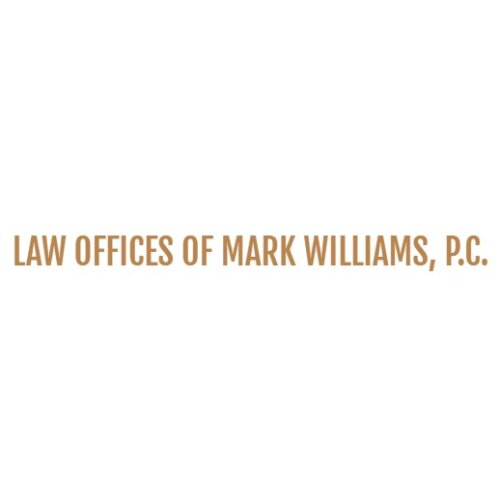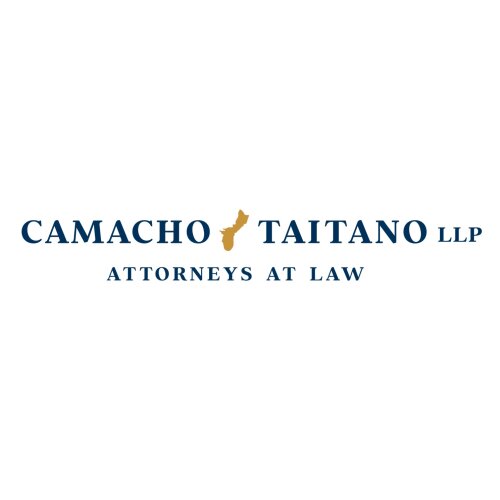Best Water Law Lawyers in Guam
Share your needs with us, get contacted by law firms.
Free. Takes 2 min.
Or refine your search by selecting a city:
List of the best lawyers in Guam
About Water Law in Guam
Water Law in Guam governs the rights, allocation, usage, and protection of water resources within the territory. This specialized field addresses both surface water and groundwater, balancing the needs of residential users, agriculture, businesses, and environmental conservation. Given Guam’s limited landmass, unique ecosystem, and reliance on specific freshwater sources such as aquifers, managing water use and protecting water quality are of critical importance. Water Law encompasses statutes, regulations, and case law relating to the extraction, distribution, pollution control, and conservation of water resources.
Why You May Need a Lawyer
Legal assistance is often required in matters involving Water Law due to the complex regulations and significant stakes involved. Here are some common situations where a qualified lawyer can provide valuable guidance:
- Disputes over water rights or access to shared water sources between neighbors or landowners
- Business or property development that may affect local water supply or quality
- Compliance with local and federal water quality regulations, such as those enforced by the Guam Environmental Protection Agency (GEPA)
- Permitting or licensing for wells, water extraction, or wastewater management
- Environmental concerns, including pollution incidents or conservation violations
- Public nuisance claims related to water contamination or improper use
- Navigating governmental processes for approvals or appeals regarding water use
Local Laws Overview
In Guam, Water Law is governed by a mixture of local statutes, administrative regulations, and federal environmental laws. Key aspects include:
- The Guam Waterworks Authority oversees public water supply, quality, and distribution
- Water rights are generally linked to land ownership, but permissions and permits are needed for certain uses, especially for large-scale extraction or commercial purposes
- The Guam Environmental Protection Agency regulates water pollution, requiring compliance with standards for wastewater discharge, stormwater runoff, and industrial pollutants
- Local statutes, such as Guam Code Annotated Title 10 and Title 22, provide detailed rules for water and environmental protection
- Special regulations apply to well drilling, aquifer protection, and usage of water from the Northern Guam Lens Aquifer, the primary source of freshwater
- Public participation and review processes are established for major water projects, providing opportunities for community input and legal challenge
Frequently Asked Questions
What agency is responsible for managing water quality in Guam?
The Guam Environmental Protection Agency (GEPA) is primarily responsible for protecting and regulating water quality, working alongside the Guam Waterworks Authority (GWA) for municipal supplies.
Do I need a permit to drill a well on my property?
Yes. Permitting from the appropriate government agencies is required before drilling or operating a well, to ensure protection of both the water supply and public health.
Can I use rainwater for household use?
Rainwater harvesting for non-potable uses is commonly permitted, but regulations exist if the supply is used for drinking water or if there is potential for contamination.
What should I do if I suspect water contamination in my area?
Contact the Guam Environmental Protection Agency immediately to report possible contamination. You may also consult a lawyer to understand your legal rights and potential claims.
How are water rights determined in Guam?
Water rights are primarily associated with land ownership, but usage is regulated to ensure fair distribution and protection of the resource. Permits are needed for specific uses or large extractions.
Can businesses be held liable for polluting water sources?
Yes. Both local and federal laws impose strict liability for unauthorized discharges and contamination. Penalties, cleanup obligations, and even civil litigation may result from violations.
Is public input allowed before a major water project is approved?
Yes. Public hearings and stakeholder consultations are typically required for permits involving significant water use or impact, giving the community an opportunity to raise concerns.
What legal recourse do I have if my access to water is restricted?
If another party unlawfully restricts your access to water, you may have a legal claim. Consult a lawyer to evaluate your rights and possible remedies under Guam's Water Law.
How are stormwater and wastewater regulated?
Stormwater and wastewater disposal are tightly regulated, with permits required for most systems. The Guam EPA enforces rules to prevent pollution and protect aquifers and marine environments.
Can I appeal a water-related decision made by a government agency?
Yes. Most administrative decisions by agencies like GWA or GEPA can be appealed through established procedures, often requiring prompt action and legal representation.
Additional Resources
If you need further information or assistance, the following resources and agencies can provide guidance:
- Guam Environmental Protection Agency (GEPA): Responsible for environmental regulations and water protection
- Guam Waterworks Authority (GWA): Manages water supply, billing, and infrastructure
- Department of Land Management: Handles property records and water rights issues linked to land ownership
- Guam Legislature: For accessing local statutes and legislative updates
- Legal aid organizations or the Guam Bar Association: For connecting with attorneys specializing in Water Law
- University of Guam Water and Environmental Research Institute (WERI): Offers research and educational resources concerning Guam's water issues
Next Steps
If you require legal assistance in a Water Law matter, start by gathering all pertinent documents, such as permits, correspondence with government agencies, and evidence of the issue at hand. Consider reaching out to one of the agencies listed above for preliminary information on your concern. However, for any dispute, violation, or complex compliance matter, it is highly recommended to consult a lawyer with experience in Water Law in Guam. Look for attorneys or legal aid services familiar with local statutes and processes, and request an initial consultation to discuss your case and assess your options.
Lawzana helps you find the best lawyers and law firms in Guam through a curated and pre-screened list of qualified legal professionals. Our platform offers rankings and detailed profiles of attorneys and law firms, allowing you to compare based on practice areas, including Water Law, experience, and client feedback.
Each profile includes a description of the firm's areas of practice, client reviews, team members and partners, year of establishment, spoken languages, office locations, contact information, social media presence, and any published articles or resources. Most firms on our platform speak English and are experienced in both local and international legal matters.
Get a quote from top-rated law firms in Guam — quickly, securely, and without unnecessary hassle.
Disclaimer:
The information provided on this page is for general informational purposes only and does not constitute legal advice. While we strive to ensure the accuracy and relevance of the content, legal information may change over time, and interpretations of the law can vary. You should always consult with a qualified legal professional for advice specific to your situation.
We disclaim all liability for actions taken or not taken based on the content of this page. If you believe any information is incorrect or outdated, please contact us, and we will review and update it where appropriate.
Browse water law law firms by city in Guam
Refine your search by selecting a city.










